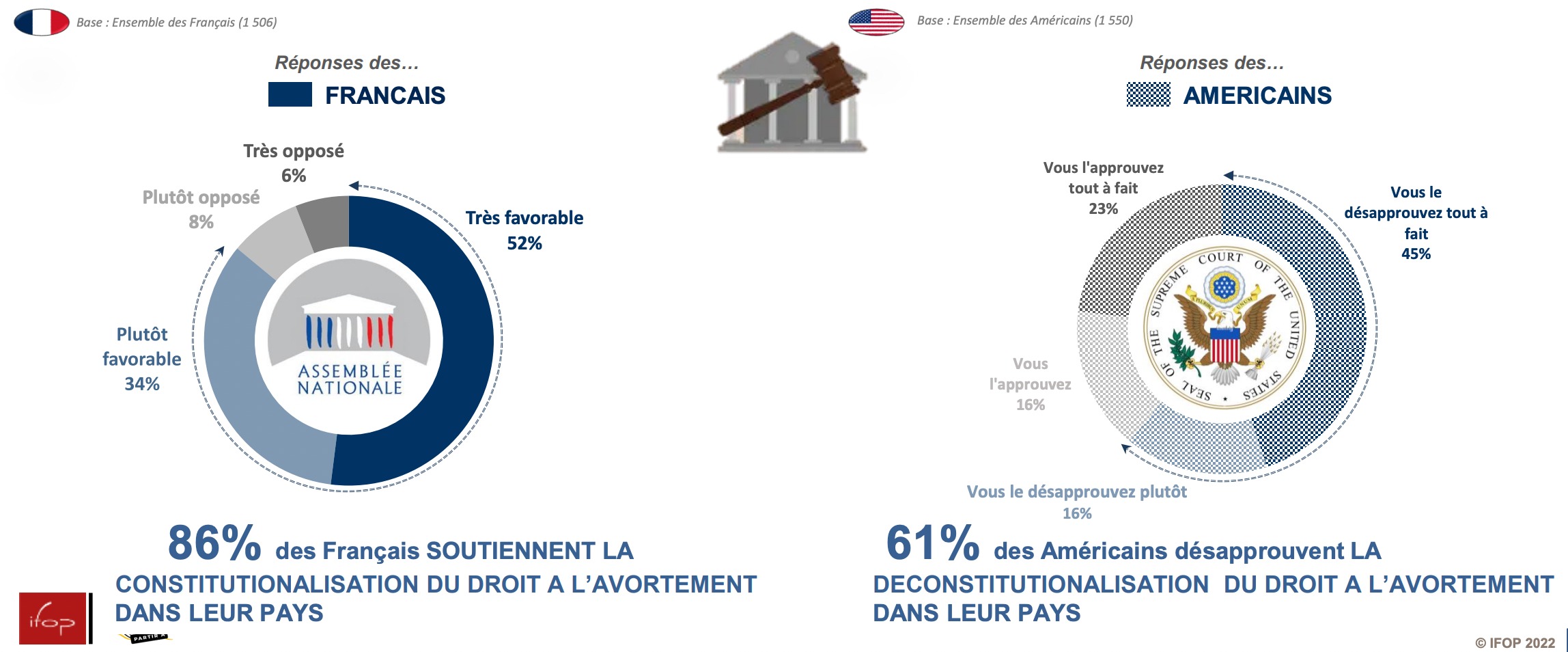Published on
Updated
Reading 2 mins.
On the occasion of the 48th anniversary of the vote of the Veil law in the National Assembly, Ifop conducted a vast study on the right to abortion in France and the United States… and the results are rather edifying.
While a bill aimed at including the right to abortion in the Constitution was voted by the deputies on Thursday, November 24, a study reveals that the vast majority of French people support the right to abort freely.
Abortion: only 18% of French people consider that it is necessary to “set limits”
This is good news for all French women. According to a large survey conducted by the IFOP among 1,506 French people and 1,550 Americans (all representative of the population and aged 18 and over), the French are more and more open to abortion.
Thus, nearly 81% of our fellow citizens support the right to free abortion against barely half of Americans (50%).
77% of French people also say they are in favor of unrestricted access to abortion and only 18% believe that limits should be placed on this practice (compared to 25% in 2014 and 49% in 1974).
In continuity, 86% of French people support the constitutionalization of the right to abortion while only 61% of Americans disapprove of the revocation of the Roe v Wade decision, dating from June 24th.

A much more conservative American society
In general, the survey shows that American society is much more conservative than French society on questions of gender and sexuality (sex change, sexual relations between adolescents, divorce, gay or lesbian relations, etc.).
Only 52% of Americans call themselves “feminists”, compared to 67% of French people.
“Contrary to the United States, where the positions of supporters and opponents of abortion have been more or less fixed for 50 years, French public opinion is massively attached to abortion, both in its principle and in the details of it. its conditions of application. This consensus around one of the main sexual and reproductive rights of women explains the massive support for the current process of constitutionalization which, moreover, encounters few obstacles in the conservative electorates.“, concludes François Kraus, director of the Gender, sexualities and sexual health pole of Ifop.
